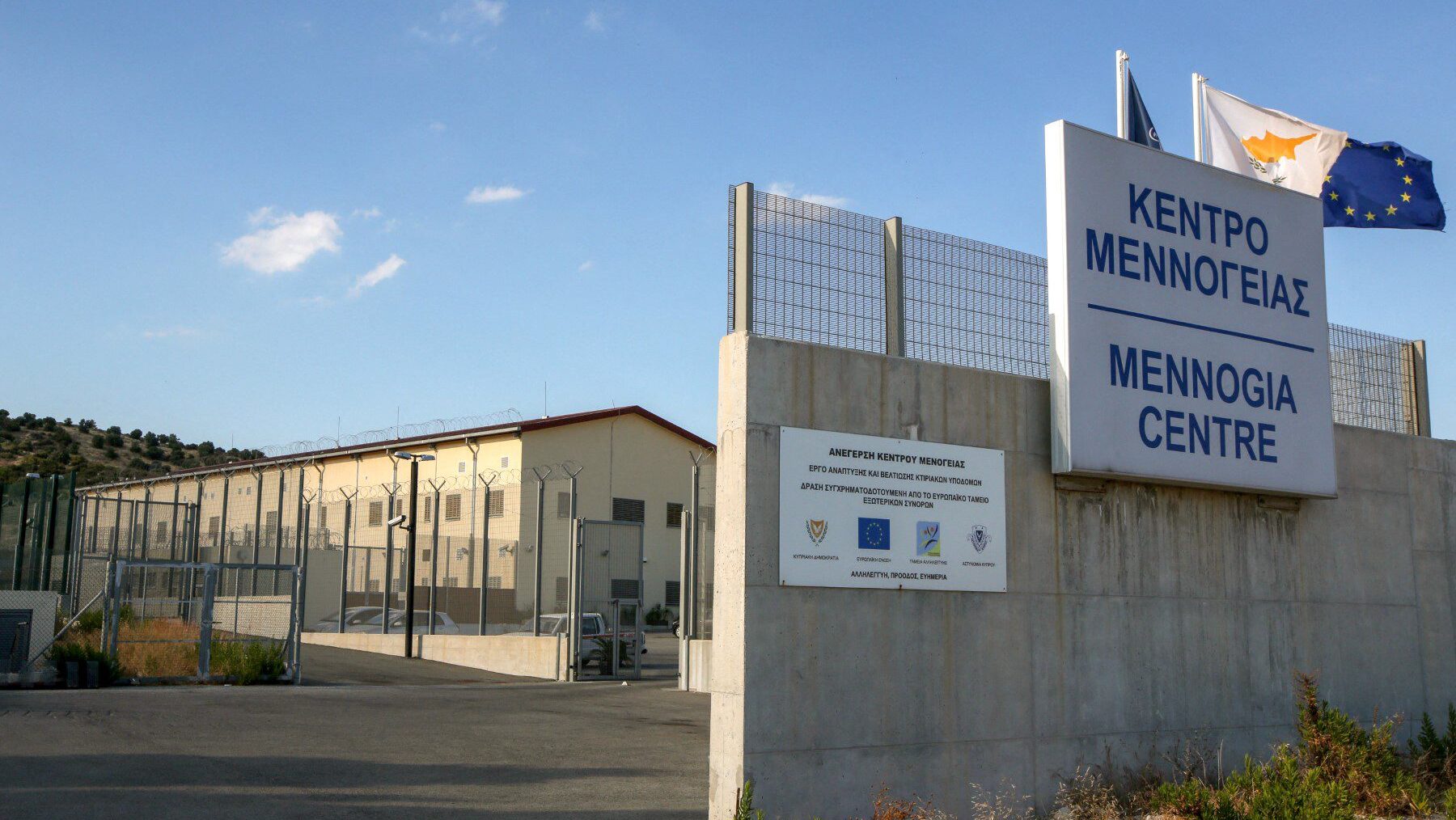
Mennogia Detention Center for illegal migrants in Larnaca District, Cyprus.
Photo: Photo by Alex MITA / AFP
Cyprus has once again pressed Brussels to designate Syria, or at least parts of the country, as ‘safe’ in order to ramp up returns of illegal migrants. The call came during a visit to the country by Home Affairs Commissioner Ylva Johansson on Tuesday, January 9th. However, the EU official refused to commit to Nicosia’s request, the Cyprus Mail wrote.
Like other Mediterranean member states, Cyprus has been experiencing “unprecedented” migration flows lately, the country’s interior minister, Constantinos Ioannou warned after the meeting. Because of its proximity to Syria, Ioannou explained, the island is exposed to “disproportionately large numbers of illegal migrants arriving from the area, which puts pressure on our reception system.”
Therefore, the minister called for a review of the status of the Syrian civil war and to designate the country, or specific parts, as ‘safe zones,’ which would allow EU member states to facilitate returns more effectively. In fact, Nicosia has been campaigning for such a move for months, but its pleas seem to fall on deaf ears.
Adjusting Syria’s migration status “is not easy, which is why we have discussed it and will continue discussing it,” Johansson replied, adding that she believes only the new Migration Pact can solve the issue.
For his part, Ioannou thanked the commissioner for bringing the Migration Pact close to completion, although his government is not entirely convinced that the envisaged relocation scheme is enough to address Cyprus’ problems.
Relative to its size as an island country with just below a million inhabitants, Cyprus faces the greatest threat from illegal migration among all member states. Currently, 5.5% of the entire population are either asylum applicants or have already been granted international protection.
Still, Nicosia sets an example for all other member states in dealing with high migration numbers.
So far, Cyprus’ four-pillar policy—consisting of reducing arrivals, upgrading infrastructure, speeding up application processes, and increasing both deportations and voluntary returns through financial incentives—seems to be working. Last year, the number of arrivals and asylum applications dropped by 50%, although primarily from Turkish-occupied Northern Cyprus while sea arrivals remain a large problem.
Furthermore, it was revealed in December that Cyprus has become the first and only EU country that managed to facilitate more returns than the number of migrants it received during 2023. “The fact that during 2023 we had a 116% return-arrival rate is remarkable, especially taking into consideration the situation in the rest of Europe,” Ioannou asserted.
Nonetheless, this might not be enough for Cypriots tired of Syrian migrant boats reaching their shores. The government’s renewed push to designate at least parts of Syria as safe comes against the backdrop of a series of violent events in the country that show growing internal pressure to deal with the situation.
Last September, an anti-migration march turned into a violent riot in the southern port city of Limassol, where a smaller faction of the protesters attacked Muslim locals and trashed Middle Eastern businesses, resulting in the arrest of 13 people.
Last Friday, the offices of the local migrant support group Kisa were destroyed in an apparent bombing in Nicosia. No one was wounded in the attack, but the perpetrators are still at large.
While Cypriot society condemns these violent acts, the majority of the country still has strong opinions about illegal migrants. In a representative poll carried out by the UNHCR last year, more than half of respondents agreed that all refugees should be returned home, while 83% said the government no longer has the capacity to accept asylum-seekers and 87% agreed it should implement an upper limit for refugees.
